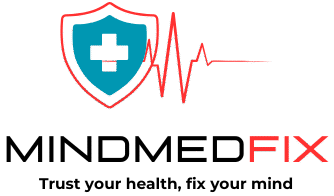With today’s stressful working pace of the world, working professionals will frequently sacrifice their health for the sake of productivity. Extended work hours, full calendars, and constant connectivity tend to create little time for self-preservation, with many individuals finding themselves wondering, “How do I have a healthy life with this crazy schedule?”
The solution isn’t about totally rebooting your whole regimen, but rather about making sustainable, purposeful adjustments that are good for both body and brain. This post provides realistic health and wellness advice for corporate leaders, informed by science and aligned with real needs.
1. Sleep: The Pillar of a Healthy Life
Good sleep is not a nicety—it is a necessity to your well-being. Studies demonstrate that regular, restful sleep enhances memory, decision making, mood, and immune function.
To Sleep Better:
- maintain a regular sleep-wake cycle, even on weekends.
- avoid screens and caffeine in the evening hours.
- set up a calm, quiet, and cool bedroom environment.
To everyone interested in the ways of living healthily when work is constant, sufficient sleeping comes most times as the perfect first response. An adequately slept brain functions well and handles pressure better.
2. Brainy Nutrition: Fueling Your Workday
Harried work calendars go along with poor dieting: skipped meals, readily available fast foods, or too many cups of caffeine. Dietary requirements must be utilized to fuel drive and concentration, though.
Real Life Nutrition Strategies for Working Folks:
- Take a few minutes preparing meals on the weekend. Roast plain foods which are easily microwavable.
- Workday-prepped health snack food—such as nuts, fresh chunks of fruit, or energy bars.
- Drink plenty of water throughout the day. If needed, set reminders to stay hydrated.
If you’re seeking nutrition tips for professionals on the go, meal prepping and mindful snacking can go a long way toward maintaining your energy and productivity.
3. Physical Activity: Sit Less, Move More
Sedentary behavior can be a product of the needs of modern work, which increases a range of health issues. The good news is that remaining active does not need to include hours at the gym.
Busy Exec’s Fast Fitness Tips:
- Weave “desk exercises,” such as seated leg lifts or rolls of shoulders, into your workday.
- Make walking breaks a part of lunch or meet-the-scheduler-in-between.
- Climb the stairs instead of riding elevators whenever possible.
These tiny tweaks are considered to be time-saving tips for professional health, combatting the impacts of long sitting and generally enhancing health.
4. Mental Wellness: Looking After Your Mind
Stress is a part of life working, but it needs to be kept in check to prevent burnout and mental exhaustion. Overworked professionals can find the following simple yet effective tips on mental health useful:
Mindfulness Strategies:
- Try to meditate or practice deep breathing for five to ten minutes a day.
- Keep a journal or maintain a three-things daily list that you are grateful for.
- Set work-life boundaries—especially in home work settings.
By integrating these habits of mental wellness into your lifestyle, you will notice that you are more capable of handling stress and staying alert and focused.
5. Morning Routine: Beginning the Day with Purpose
The way you start the day sets up everything that comes afterwards. An organized morning routine creates mental preparation and emotional calmness.
Ideas for Morning Routine for Busy Professionals:
- Wake up at the same time every day and resist hitting snooze.
• Make the first glass of water as you wake up after sleeping as the body’s fluid level becomes minimal.
• Use light stretches, mindfulness practice, or writing before starting to work.
These morning routine suggestions not only enhance concentration but also create a positive atmosphere for the whole day.
6. Time-Saving Healthy Habits
Good health does not necessarily need extra time—most times, it’s using your existing time wisely. The below time-saving health tips for working professionals are simple and effective.
Effective Health Strategies:
- Listen to wellness or educational podcasts during transport or during cooking.
- Insert brief exercise regimes (e.g., 10-minute yoga) into daily routines.
- Employ technology in order to simplify meal planning or grocery shopping.
These little habits add up over the years, keeping you healthier without ever interrupting your daily routine.
7. Desk Exercises: Wellness in the Workplace
For individuals in sedentary jobs, desk exercises for individuals with sedentary occupations provide an easy solution to remain active. Small motions during the workday can maintain posture and energy levels.
Office-Friendly Exercises:
- Seated torso twists
• Neck and shoulder rolls
• Wrist stretches and hand openers
• Taking calls and standing calf raises
Also, think about ergonomic updates to your office, like a standing desk or lumbar-support chair, to continue encouraging workplace health.
8. Emotional and Social Wellness
Wellness is not just physical health; emotional and social well-being are just as vital, especially in stressful professional fields. Busy people’s self-care habits may start with acknowledging the importance of downtime and relationships.
How to Support Emotional Health:
- Make time every week to spend time with friends or family.
• Pursuea club, hobby group, or professional association.
• Make room for rest, creativity, and playtime in your weekly planner.
Recall that emotional support and meaningful connection are paramount in mental resilience.
9. Use Technology Wisely
Smartphones, apps, and wearables can aid health objectives but can also be distracting. Care is needed to balance work and wellness in the form of managing your digital space thoughtfully.
Technology Tips:
- Utilize wellness apps for meditation, sleep monitoring, or developing habits.
- Disable unnecessary notifications to limit screen fatigue.
- Establish “digital curfews” at night to wind down adequately.
Technology, when used wisely, can be a valuable helper in accomplishing your wellness objectives.
10. Preventive Health: Don’t Wait for a Wake-Up Call
Preventive care gets shortchanged, but it is one of the soundest strategies for long-term health. Regular medical checkups and screenings keep little problems from turning into large ones.
Preventive Health Must-Dos:
- Annual physicals, dental cleanings, and vision checkups should be scheduled.
- Significant markers such as blood pressure and cholesterol should be monitored.
- Professional help needs to be sought if mental health issues are being encountered.
Holding regular visits to medical professionals an absolute part of your self-care routine needs to be accomplished.
11. Work-Life Balance: A Strategic Goal
There are several possible ways to work-life balance, but it is an essential element of a happy, good life. It is a question of setting boundaries, prioritizing well, and staying focused on what truly matters.
Work-Life Balance Strategies:
- Set your values for yourself and your career.
- Set firm boundaries around work time, especially when working from home.
- Delegate work as needed in order to free time for family and personal care.
Work-life balance is not a location but a habit—though one that requires regular attention and maintenance.
12. Conclusion: Investing in Your Health Pays Dividends
Good health and a high-pressure job would seem to be contradictory goals, but are surely attainable. A commitment to consistent, minor actions can enhance your physical health, mental functioning, and emotional stamina.
In Summary:
- Rest, diet, exercise, and mental wellness form the base of well-being.
- You do not have to do all things at once—begin with that which leaves you feeling comfortable.
- Employ technology, planning, and support systems to keep on track.
Ultimately, these tips for busy professionals’ health and wellness are meant to assist you in establishing a lifestyle that accommodates your objectives—without compromising your health.
Read About How Mental Health Impacts Your Overall Wellness
Checkout our Facebook Page



